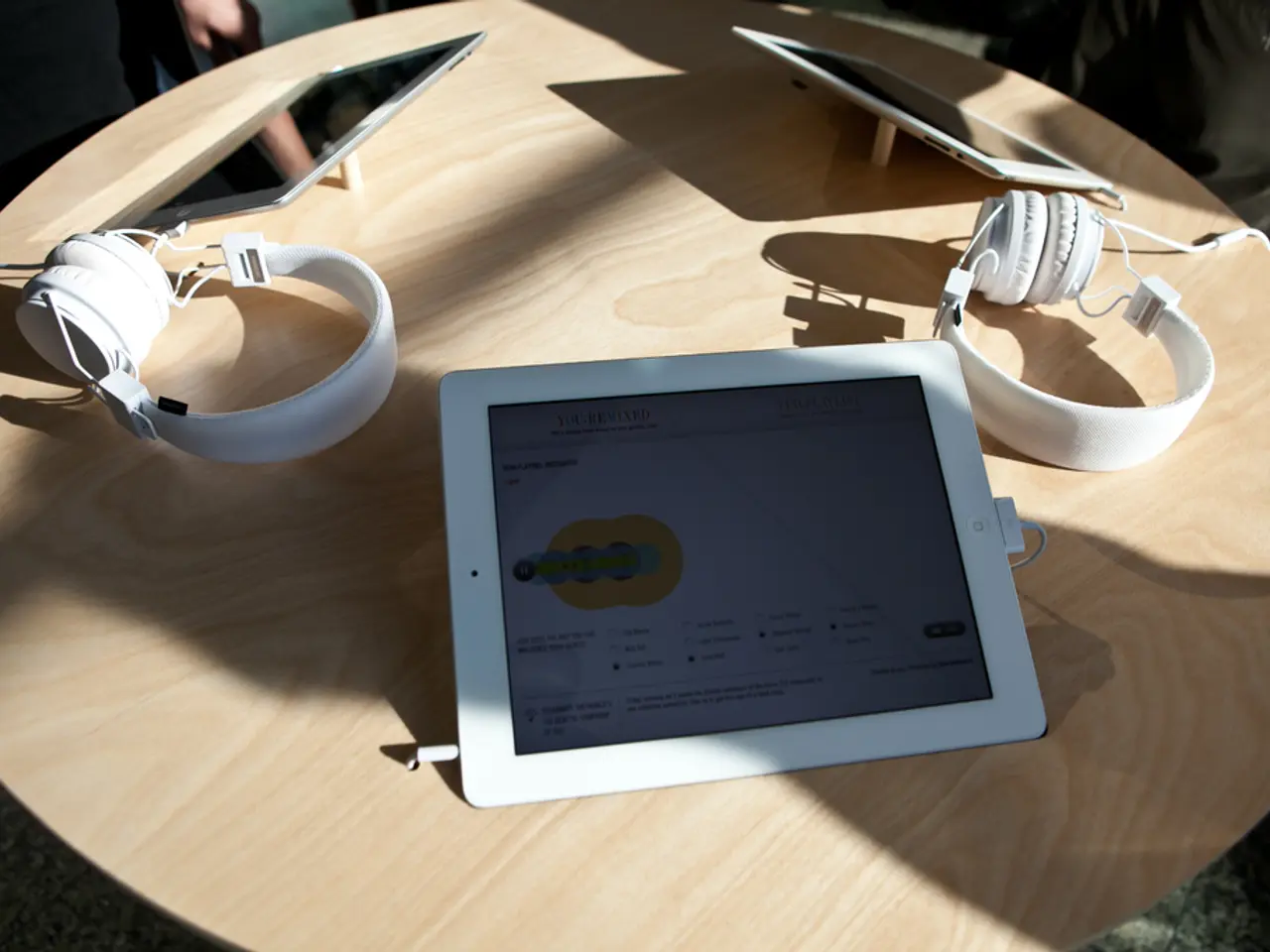Exploring the Security of Modern Medical Gadgetry: An Examination
In the rapidly evolving world of healthcare technology, the use of smart health devices has become increasingly common, with devices such as smart thermometers, wearable ECG monitors, Bluetooth-enabled inhalers, and other connected health tools now found in everyday settings. As these devices collect and transmit sensitive health data, it is essential for consumers to understand the importance of cybersecurity measures to protect their personal information and ensure the safety of their health.
Choosing devices from reputable brands and healthcare providers is a crucial first step in maintaining security. However, it is also important to be cautious with unfamiliar third-party accessories or data-sharing platforms. In the United States, the Food and Drug Administration (FDA) requires certain medical technologies to meet cybersecurity standards as part of their premarket approval process. Cybersecurity experts work closely with manufacturers to identify vulnerabilities, implement protections, and ensure devices meet safety guidelines.
To learn more about cybersecurity measures for smart health devices and what precautions consumers can take, there are several resources available. Trusted organizations and cybersecurity firms publish guides and best practices for securing health technology, such as the Splashtop blog, which outlines practices like multi-factor authentication, strong encryption, role-based access control, and regular software updates for medical devices.
State and federal agencies, like Indiana Cybersecurity, offer free toolkits and guidance for healthcare organizations and consumers. These often include recommendations for strong passwords, regular updates, and adherence to privacy standards like HIPAA. Technology solution providers, such as UL Solutions, offer comprehensive cybersecurity services and testing for medical devices, ensuring they meet industry standards and are resilient against cyber threats.
Key cybersecurity measures for smart health devices include multi-factor authentication, strong encryption, role-based access control, regular software updates, network segmentation, continuous monitoring and anomaly detection, and compliance with regulations like HIPAA, GDPR, and FDA requirements.
For consumers, taking practical steps can help secure their smart health devices. Using strong, unique passwords, enabling multi-factor authentication, keeping devices and apps updated, monitoring device permissions, being cautious with network sharing, regularly reviewing device activity, and educating oneself about common cyber threats are all important precautions to take.
Additional tips for consumers include checking for compliance with relevant privacy and security standards, using reputable manufacturers, participating in information-sharing networks, and asking doctors or pharmacists questions about device functionality and data handling. By following these practices and leveraging available resources, consumers can better protect their personal health information and reduce the risk of cyber threats.
While the responsibility of securing devices starts with manufacturers, consumers can also take steps to stay protected. It is crucial to understand what happens behind the scenes with these devices to ensure that personal data and physical well-being are properly protected. With the increasing use of smart health devices, the question of how secure these devices are is too important to ignore as we invite more technology into our bodies and homes. Many medical devices, especially those regulated as medical equipment, undergo rigorous cybersecurity checks before reaching the market. However, it is essential for consumers to stay vigilant and take the necessary precautions to safeguard their personal health information.
- To maintain the security of smart health devices, consumers should choose products from reputable brands and healthcare providers, and be cautious about third-party accessories or data-sharing platforms.
- Cybersecurity experts collaborate with manufacturers to identify potential vulnerabilities, implement protections, and ensure devices meet safety guidelines, often adhering to regulations like HIPAA, GDPR, and FDA requirements.
- By following cybersecurity measures such as multi-factor authentication, strong encryption, regular software updates, and network segmentation, as well as staying informed about common cyber threats, consumers can better protect their personal health information and reduce the risk of cyber-attacks.




